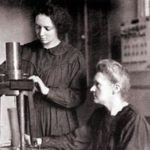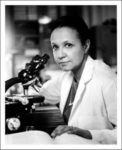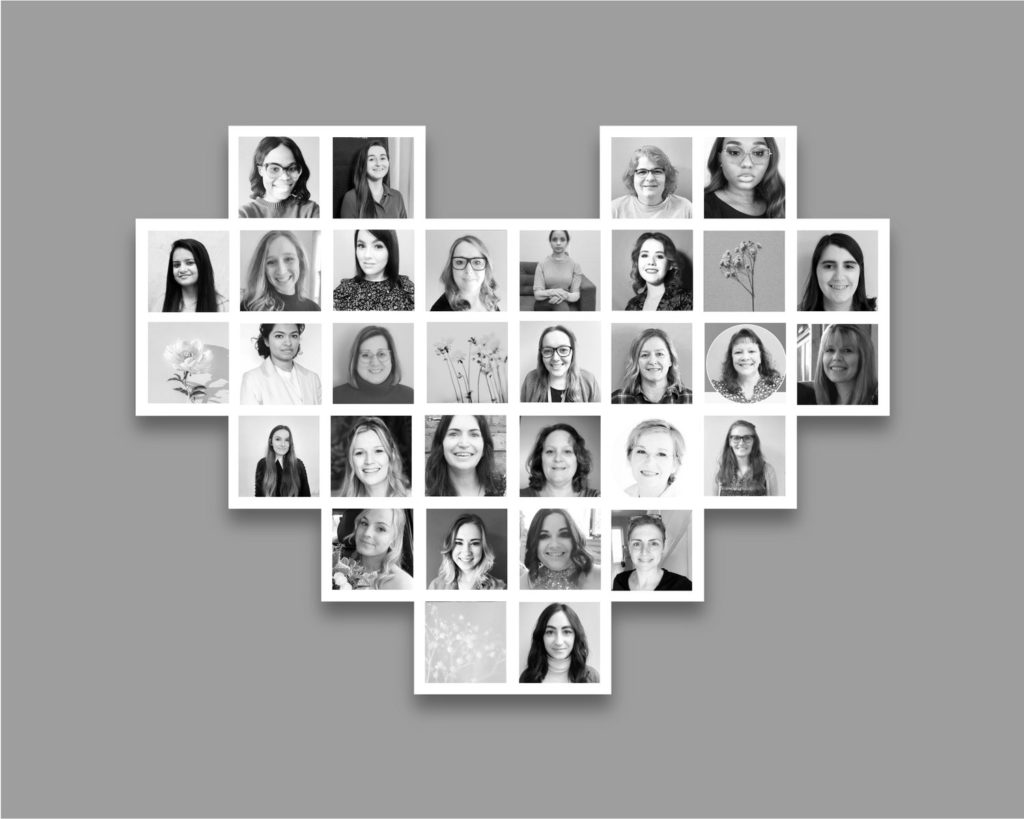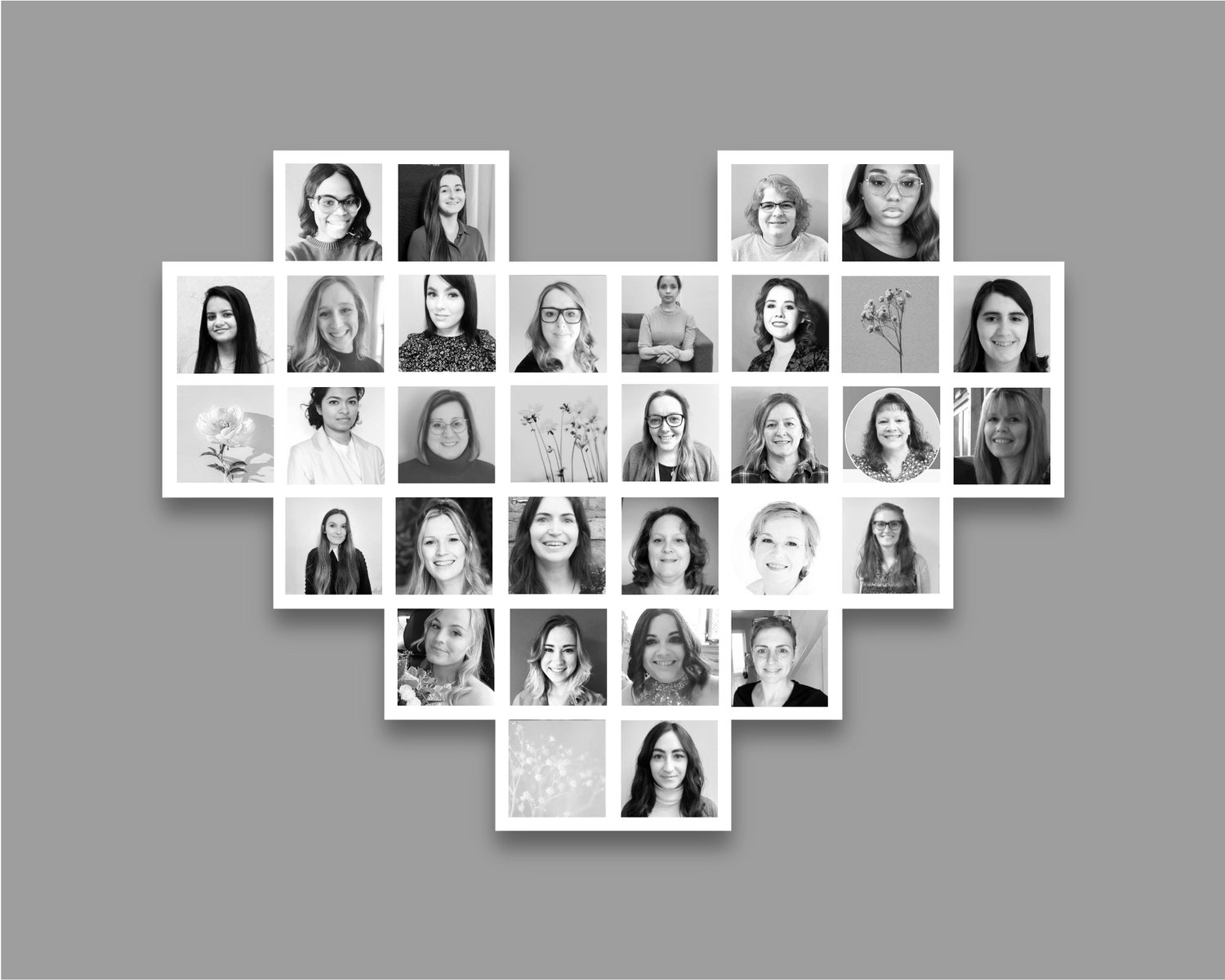Women have been a part of medicine and healthcare since ancient times when the use of plants and natural remedies cured all manner of diseases. For centuries their names were left out of the history books with only a small number of exceptional progressivists making the official records for pioneering work that simply could not be overlooked or for their sheer tenacity in refusing to be silenced in what was a male-dominated profession. One such figure was Agnodice of 4th Century BCE, the first female physician in ancient Greece who practiced medicine disguised as a man. On discovery of her gender, she was sent to trial and following protests from her patients she was acquitted and the law barring women from practicing medicine was revoked.
Despite the gradual acceptance of women within the medical world, it was a slow process in allowing their voices to be heard. But with the persistence of a few female trailblazers, women have secured their place in history.

Radiotherapy was born in the 19th century due in part to the work of Marie Sklodowska-Curie. Crowned the First Lady of Radiation, she was the first woman to receive the Nobel Prize and the only woman to have received two. Without the hard work of Marie and her husband radiotherapy might have not developed at the pace that it did and cancer treatment itself might not look the same today. Marie paved the way for other women to make an impression in the radiation world. This included her own daughter Irene Curie who trained as a nurse radiographer and went on to be a Nobel prize winner in her own right for her role in the discovery of induced radioactivity.
Trailblazing Women who led the way in fighting cancer

Dr Constance Wood (1897-1985) was the Director of the Medical Research Council’s Radiotherapeutic Research Unit at Hammersmith Hospital and is considered a pioneer in radium beam research. She was one of the first women to study at King’s College where she held her first junior position in the radiology department. Her interest in treating cancer with Radium developed with her clinical assistant role at the Royal Cancer Hospital. She was seconded to the Radium Institute and was part of the team tasked with investigating if a large external source of radium could be used without risk to the patient or treating professionals. The equipment they created became standard in many UK hospitals. She went on to be part of the development of the first-ever linear accelerator. Throughout her career she held many very senior roles in radiotherapy such as president of the section of Radiology of the Royal Society of Medicine. These senior roles allowed her to influence and change in the radiotherapy landscape and her passion for her work meant she used her platform to make these changes known to all.

Jane C Wright (1919-2013) was a pioneering cancer researcher and surgeon. She is credited for developing the technique of using human tissue culture rather than laboratory mice to test the effects of potential drugs on cancer cells. She discovered the use of methotrexate to treat breast cancers and skin cancers. Her vision was to make chemotherapy treatments more accessible for everyone in a time when chemotherapy was deemed a ‘last resort’ treatment. Her use of human tissue allowed researchers to observe how effective combination regimes were and dose variations in reducing patient toxicity.

Jimmie Coker Holland (1928-2017) is best known for establishing a full-time psychiatric service within the Memorial Sloan Kettering Cancer Center, this service was the first of its kind. After this, she founded the American Psychosocial Oncology Society and later the International Psycho-Oncology Society. Her book “The Human Side of Cancer” helped patients with cancer develop support systems to cope with their diagnosis. Her teachings have formed the foundation for psychiatric services around the global and contributed towards the emotional and psychological support of thousands of patients coming to terms with a cancer diagnosis.
Bring the focus closer to home

Professor Pat Price is an academic clinical Oncologist from the UK who specialises in PET-based molecular imaging, advanced radiotherapy techniques, translational research in oncology and medical-legal issues in cancer. She founded the UK academic Clinical Oncology and Radiobiology Research network which was later rebranded as the charity Radiotherapy UK, which is the UK’s only charity focused on improving radiotherapy treatment. She has been responsible for the parliamentary launch of the ‘Radiotherapy4Life’ campaign which is devoted to fighting for world-class radiotherapy service in the UK. Pat continues to campaign to improve radiotherapy in the UK, she co-founded the Global Coalition for Radiotherapy which joined international groups sharing the challenges of radiotherapy delivery during the COVID-19 pandemic. She also applies pressure to the government with campaigns such as #CatchupWithCancer which insists that the government work to reduce oncology waiting lists.

The close of 2023 brought with it the news that Professor Heidi Probst had been awarded an MBE in the 2024 New Year’s Honours list for services to radiography. Heidi qualified as a therapeutic radiographer and worked clinically for 14 years before moving further into academia as a researcher and lecturer. Heidi led a specialised team at Sheffield Hallam University in the SuPPORT 4 All project to develop radiotherapy bras to improve treatment accuracy and maintain patient dignity during treatment, a project she continues to steer. Heidi has remained very focused and dedicated to her goal of improving the experience of radiotherapy for those diagnosed with cancer.

Spread out across the UK are 24 beautifully constructed safe havens called Maggie centers. They provide patients a place to escape and get professional support when their lives have been turned upside down by cancer. They can get psychological, financial and physical support post-treatment and they can meet with other people following a similar journey. Maggie’s has supported many people since the first center was opened in 1996. The inspiration for these centers was Maggie Keswick Jencks. Maggie was first diagnosed with breast cancer when she was 47 and 5 years later she got the devastating news that it had returned. After receiving this news she was escorted back into a windowless corridor to process this life-changing news, in that moment Maggie and her husband Charles decided that there needed to be somewhere better for people to process these thoughts and emotions but remain close to the hospital. Maggie and Charles, using their friends in the architecture world, created the blueprint for these beautiful centers with the first Maggie’s center opening in Maggie’s hometown, Edinburgh, shortly after her passing. Maggie’s dream was to create a calm and friendly place for people to go and her dream continues to extend across the UK and now internationally.
Inspiration within Leo
Leo Cancer Care is a company built on a foundation of professionals that stretch across many disciplines and backgrounds. This includes; engineering, human factors, radiography, medical physics, research and marketing. Women make up a third of the workforce and the skills, expertise and passion they bring to the company regardless of their roles are integral to its success.

Subscribe to our newsletter
STAY CONNECTED
Get the latest updates and exclusive offers delivered straight to your inbox
Subscribe